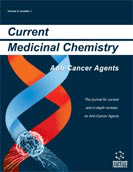Abstract
Gliomas are the most common malignant brain tumours in adults. In 2016, gliomas were categorised into four grades (WHO grades I–IV). Glioblastoma, which is classified as grade IV, is the most aggressive and severe type, with a 5-year relative survival rate of approximately 5% in adults. Conventional treatment options include surgical resection, radiotherapy, and chemotherapy, depending on the risk and grade of gliomas. Novel therapeutic strategies include immunotherapy and molecularly targeted biomarker therapies as mono- or combination therapies. One of the classical oral chemotherapeutic anti-cancer agents, temozolomide (TMZ), is beneficial for the treatment of newly diagnosed and recurrent gliomas. However, the risk of several side effects, including apoptosis and autophagy in normal brain cells, persists. Recently, in vitro and in vivo studies have provided evidence that immunotherapies, such as those based on type I interferons (IFNs), exert more significant anti-cancer effects against gliomas. Furthermore, mutations in epigenetic regulator genes, such as IDH1, IDH2, and MGMT, have been characterised as therapeutic targets for gliomas. However, there are still some challenges associated with the efficient treatment of gliomas, including the tumour microenvironment, recurrence, and prognosis. Therefore, the development of novel therapeutic strategies for cancer is necessary. Herein, we have comprehensively discussed and reviewed the therapeutic strategies currently available for treating gliomas in adult patients.
Keywords: Adjuvant Chemotherapy, Clinical Trials, Combination Therapy, Glioma, Glioblastoma, Immunotherapy, Immune Response, Molecularly Targeted Therapy, Molecular Biomarkers, Monotherapy, Prognosis, Survival Rate, Temozolomide.






















